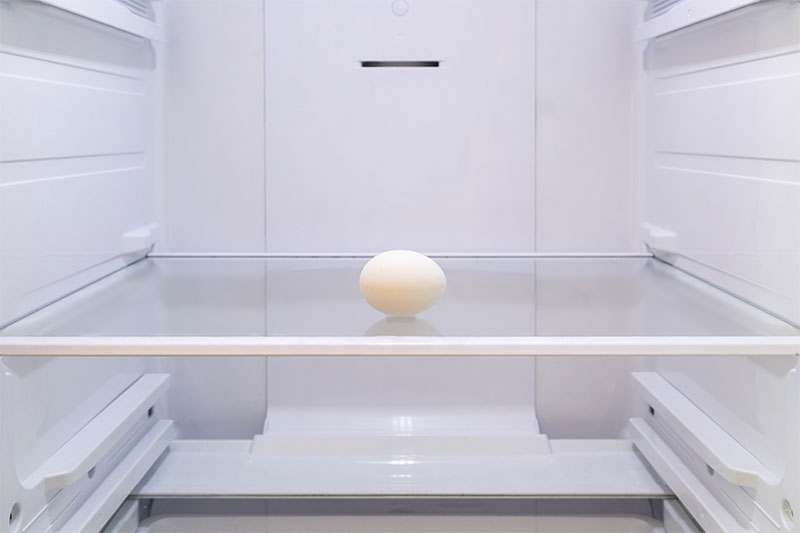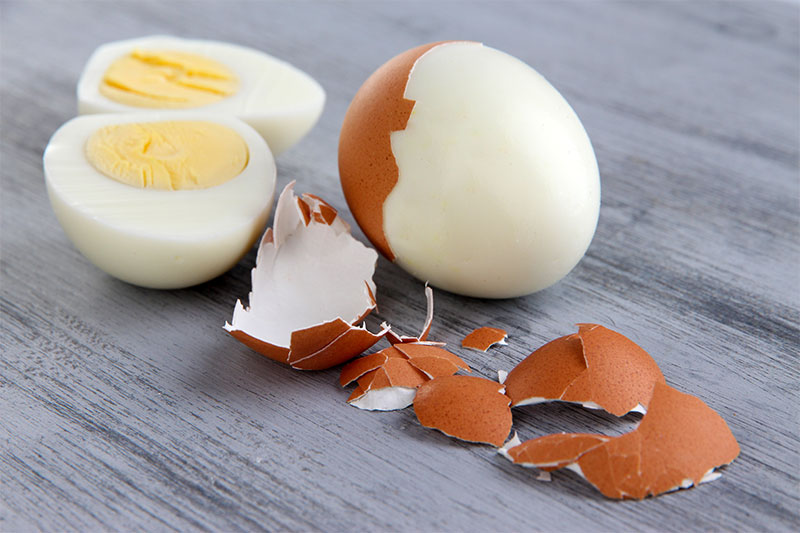Eggs form a delicious component of our daily diet. The simplest way to add eggs to your menu is by introducing boiled eggs on the plate! We even love to entertain our guests by offering them various egg-based delicacies. We even garnish certain dishes with egg slices!

Eggs are vital sources of protein and it is good to consume eggs. In fact, we are encouraged to eat one egg per day by the national television ad campaigns. But we should abide by certain safety tips:
7 – Avoid the consumption of raw eggs

The bacteria called Salmonella enteritidis (which can cause extreme intestinal distress) might be present in raw egg yolk and sometimes even in the egg whites. Although the bacteria affect a very small number of eggs (one out of 20,000 eggs), it would be wise in your part if you refrain from having raw or undercooked eggs. Some of your favorite foods might be cooked with raw eggs and hence there are chances of salmonella contamination. Give a thought before having these foods.
6 – Buy pasteurized raw eggs

If you need to use raw eggs for any special recipe, then the pasteurized egg substitutes should be an alternative to you. Pasteurization is a process in which raw eggs are quickly heated at particular temperatures to destroy Salmonella. The dried egg whites are treated with heat in their dried forms during pasteurization. Some of the supermarkets also stock pasteurized whole eggs.
5 – Store in a cool place

Room temperature supports the growth and proliferation of the bacteria Salmonella. So you should make sure that the eggs you buy are well refrigerated at the store, and you store them in your refrigerator as soon as you reach home.
4 – Store eggs in the coldest part of the refrigerator

Many people store eggs in the refrigerator door as they are designed with a special case to hold eggs. But the U.S. Department of Agriculture opines that you should allow the eggs to stay in the carton they came in, and to store the entire lot in the coldest part of the refrigerator (and not in the door).
3 – Finish up stock within 3 to 5 weeks

Sometimes special offers on raw eggs might tempt you to go for the 18-egg carton. Unless you need it, you should stay away from such deals. The raw eggs should be eaten up within 3 to 5 weeks and there is no need for that extra stock! If you have already used the raw egg whites or yolks to prepare some dishes, then you should note that the leftovers are to be used within 4 days.
2 – Safely preserve the leftovers

You should store the leftovers of the egg dishes in the refrigerator. You should consume the remaining portions within the next three days. Divide the leftovers among multiple shallow containers to achieve better cooling effects.
1 – Hard-boiled eggs are not always safe

After you hard boil an egg, your immediate step would be to store it in your refrigerator. This egg has to be consumed within a week.
Every food comes with an upside and a downside. An egg is a complete protein, and it contains fat-soluble vitamins like vitamin A, and Vitamin D. Vitamin A is beneficial for our eyesight, while Vitamin D benefits our skin. But again, a large egg contains around 213 mg of cholesterol and 5 grams of fat, of which 2 grams are harmful saturated fats. According to the recommendations of the American Heart Association, adults should take less than 300 mg of cholesterol per day. So, one egg yolk is enough to get near to this limit. And you are taking in cholesterol from other sources as well!
Thus, people with cardiovascular and coronary artery diseases and those with high cholesterol should maintain a strict regulation on the intake of eggs. One healthy option would be to switch to the Omega-3 eggs containing Omega 3 fatty acids and Vitamin E.


